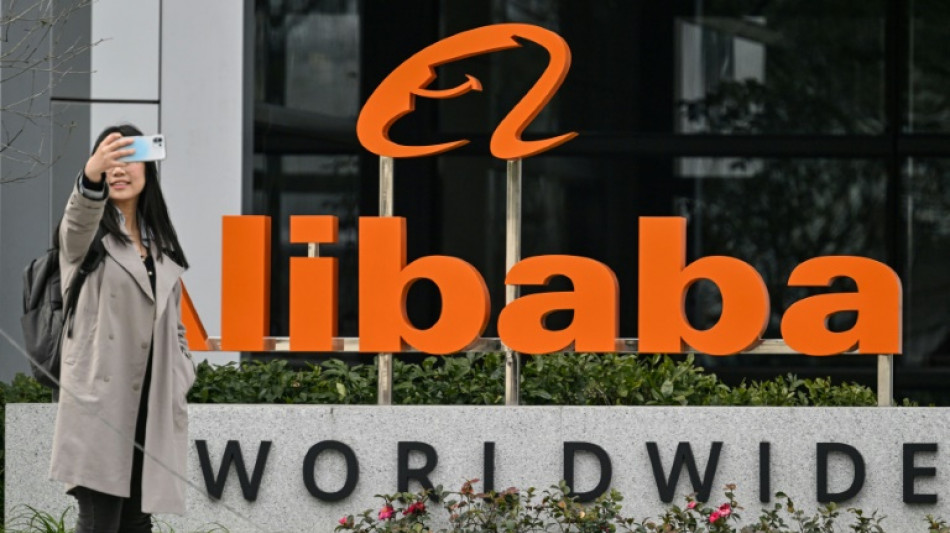
RBGPF
0.5700


Internet giant Alibaba posted on Thursday a six percent increase in annual revenue, the latest positive sign for China's tech sector despite persisting economic uncertainties that include sluggish spending and threatened trade.
The Hangzhou-based company is one of the biggest players in China's tech industry, with operations spanning retail, digital payment, artificial intelligence and entertainment.
This year has seen its share price rollercoaster on a wave of investor enthusiasm about Chinese AI capabilities that began in January, followed by a steep drop last month triggered by US President Donald Trump's global tariff blitz.
The firm's revenue during the fiscal year ended March 31 totalled 996.3 billion yuan ($138.2 billion), according to results posted to the Hong Kong Stock Exchange, up six percent from the previous 12-month period.
Net income attributable to ordinary shareholders rose to 129.5 billion yuan, the statement showed, a jump of 62 percent year-on-year according to AFP calculations.
In the final quarter alone, Alibaba saw revenue of 236.5 billion yuan, narrowly coming up short of a Bloomberg forecast.
Net income attributable to ordinary shareholders during the quarter reached 12.4 billion yuan, surging 279 percent from the low base of 3.3 billion yuan recorded during the same period last year.
"Our results this quarter and for the full fiscal year demonstrate the ongoing effectiveness of our 'user first, AI-driven' strategy, with core business growth continuing to accelerate," CEO Eddie Wu said in a statement.
The growth is another positive sign for China's tech sector, which has garnered revamped interest from investors since the shock release in January of advanced AI chatbot DeepSeek -- apparently developed at a fraction of the cost thought necessary.
Alibaba and fellow tech giants Tencent and Baidu are now funnelling large sums into a new race to develop and integrate the most cutting-edge AI applications.
- Spending slump -
As the Chinese economy strains under sluggish spending and a tumultuous trade relationship with the United States, Beijing is increasingly looking to platforms operated by domestic internet giants as a cushion for employment and consumption.
Prospects improved Monday when Beijing and Washington announced plans to significantly scale back sky-high tariffs that had severely threatened trade between the two nations.
However, economists say that the Chinese economy may still struggle to achieve the official growth target set by leaders of around five percent this year.
Alibaba's announcement on Thursday came after Tencent and e-commerce giant JD.com posted moderate increases in first-quarter revenue earlier this week, indicating a possible rebound in spending.
But official figures released on Saturday showed that consumer prices remained mired in a slump last month, reflecting continued deflationary pressure.
Alibaba was once a key subject of the aggressive regulatory crackdown launched in late 2020 on the domestic tech sector, attributed to worries in Beijing that top firms had become too powerful.
Jack Ma, the firm's charismatic co-founder who had spoken boldly about the shortcomings of China's financial and regulatory system, kept a low profile during the lengthy campaign.
He reappeared in February during a meeting with President Xi Jinping and other business luminaries -- a shock development that suggested a warmer stance from Beijing and sent Alibaba stocks soaring.
Ma is no longer an executive at Alibaba but is believed to retain a significant shareholding in the company.
X.So--ThChM